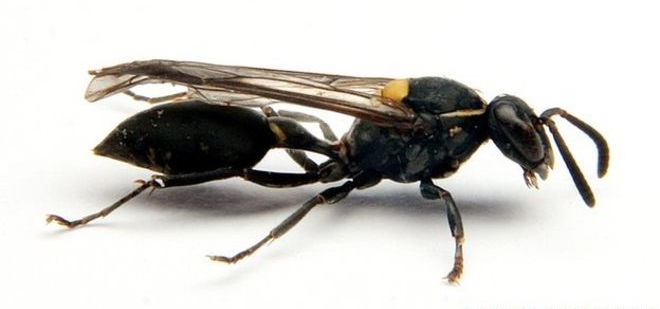New research published in the Biophysical Journal reveals that the venom of the Brazilian social wasp Polybia paulista contains a powerful anticancer ingredient. The toxin called MP1 (Polybia-MP1) is able to kill tumor cells without affecting healthy ones.
To study the mechanism behind this selective action, the research team created model cell membranes and exposed them to the toxin. With the use of imaging and biophysical techniques, it was found that MP1 selectively attacks cancer cells due to the abnormal distribution of lipids (fatty molecules), which are located on the outside of their protective membranes.
The cancer-targeting ingredient interacts with the lipids and distorts the structure of the cell membranes, creating gaping holes in them. As a result, molecules start leaking out of the membranes and cancer cells, unable to function without these molecules, eventually die.
At the same time, the toxin does not harm healthy cells because they have a different arrangement of lipids, which are found on the cell’s inner membrane and not on the outside.
According to Dr. Paul Beales, professor at the University of Leeds and co-author of the study, cancer therapies that involve the interaction with the lipids of the tumor cell membranes could become “an entirely new class of anticancer drugs.”
“This could be useful in developing new combination therapies, where multiple drugs are used simultaneously to treat a cancer by attacking different parts of the cancer cells at the same time,” he added.
The toxin has been tested on prostate and bladder cancer cells and has proven effective in inhibiting their growth. Its effectiveness has been also shown for leukemic cells, which are known to be resistant to a number of various drugs.

The Polybia Paulista wasp. Photo credits: Prof Mario Palma/São Paulo/PA.
While the use of the Polybia paulista’s venom to fight cancer is a promising possibility, more research is needed to confirm and elaborate these results. According to the researchers, the next step is not only to further study the mechanism of the MP1’s selective action but also to boost its anticancer properties for clinical purposes.
“Understanding the mechanism of action of this peptide will help in translational studies to further assess the potential for this peptide to be used in medicine,” concluded Beales.
Source from: The Mind Unleashed
